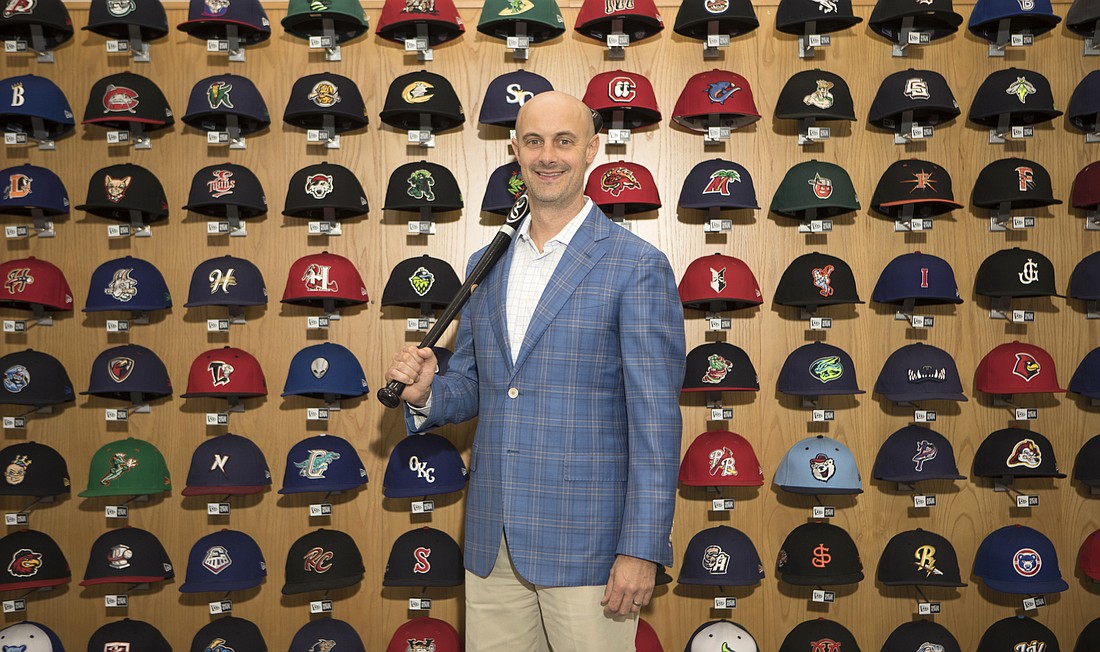- November 23, 2024
-
-
Loading

Loading

In a time of severely diminished attention spans and abundant entertainment options at home, Minor League Baseball continues to see a healthy amount of support nationwide, even while attendance dips at baseball’s major league level.
MiLB has been headquartered in north St. Petersburg for nearly four decades, and David Wright, the organization’s chief marketing and commercial officer, says the Sunshine City is an ideal base for it, considering the Gulf Coast region’s rich history as a hotbed for spring training.
“What better location, what better state?” he says. “Baseball is so core to the culture here, but a lot of people, up until recently, were not familiar with MiLB being in this market. I think that’s changing, and we’ve placed heightened emphasis on standing tall and beating the drum.”
“A lot of our clubs have gotten really sophisticated in how they manage their brand.” David Wright, Minor League Baseball’s chief marketing and commercial officer
MiLB, with some 55 employees, has a business model that's more complex than you might expect. Formally known as the National Association of Professional Baseball Leagues Inc., a dues-paying organization, it’s made up of several subsidiaries. One of them, which Wright heads up, is called Minor League Baseball Enterprises, where MiLB’s 160 clubs are shareholders. “It’s the commercial arm of Minor League Baseball,” he says.
Wright is tasked with striking deals with partners like FIS Global, a Jacksonville-based company that specializes in tech-savvy payment processing systems. “We’re working with them to create the ballparks of the future,” he says. “As a [MiLB] consumer, you would go buy your ticket, your craft beer, your merchandise, and instead of being on disparate systems, all your transactions are on one overarching system and talk to each other. It’s all about the customer experience.”
Minor league baseball, despite not being the big leagues, is a lucrative business, says Wright, who spent 15 years working for Major League Soccer before making the switch to baseball. Collectively, the 160 franchises that make up the league generate nearly $1 billion in revenue. Attendance and merchandise sales are big drivers, and both are on the rise.
MiLB merchandise sales in 2016 rose 5.06% over 2015 — good for a record-setting $68.3 million haul, according to data from the organization. Meanwhile, more than 41.8 million fans across the United States, Canada and the Dominican Republic came out to local ballparks in 2017 — an increase of 1.1% over 2016.
Contrast that with Major League Baseball, which in 2018 has seen its average attendance drop by 6.6% compared to 2017. It’s the biggest single-year decline since 1995, the year that followed the infamous strike-shortened season of 1994, when the World Series was canceled.
MiLB President and CEO Pat O’Conner has referred to minor league ball as “the best entertainment value in sports,” but Wright says the attraction’s popularity springs from much more than just low ticket, food and beverage prices.
“It starts at the top, with dynamic, progressive owners,” he says. “A lot of our clubs have gotten really sophisticated in how they manage their brand.”
For proof, head to Jacksonville. That's where, in 2015, Ken Babby, founder of Fast Forward Sports Group, bought the team, then known as the Suns, and rebranded it the Jacksonville Jumbo Shrimp. The new identity has been a boon for the club, which set a single-season attendance record in 2017 and drew nearly 7,000 fans to its home opener. The moniker has also been a hit on social media.
“There's a Double-A baseball team called the Jacksonville Jumbo Shrimp,” writes Twitter user @sunsentinello_1. “Praise Jesus.”
MiLB owners have also gone to great lengths to entice Hispanic fans to the ballpark. The San Antonio Missions, Wright says, temporarily adopted a nickname, the Flying Chanclas (“chancla” translates to “sandal” in English), that carries deep significance for the city’s Spanish-speaking population.
“As they worked with the local Hispanic community,” says Wright, “they found out many of the fans who grew up in that market had fond memories of their grandmother throwing sandals at them. It was something that was done when you were being reprimanded.”
The Mission, says Wright, has “gone on to set record numbers in attendance in merchandise sales. It’s a great example of a club that has embraced the local community, gone about it the right and authentic way and is having tremendous success and a lot of fun along the way.”